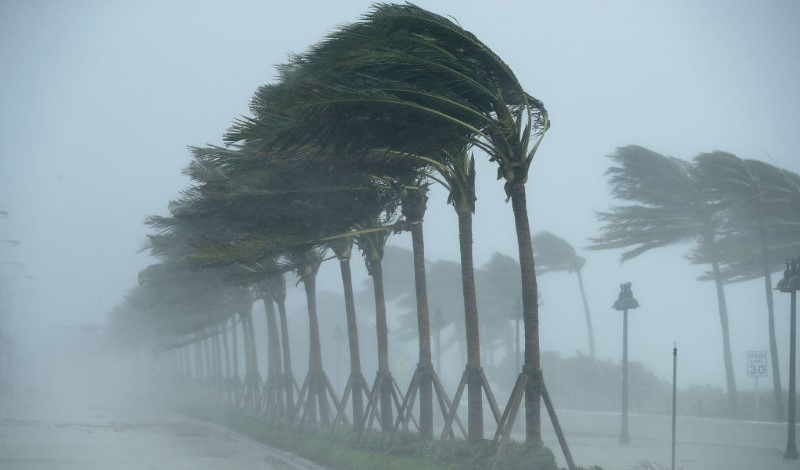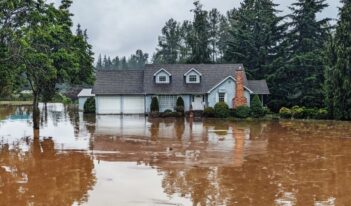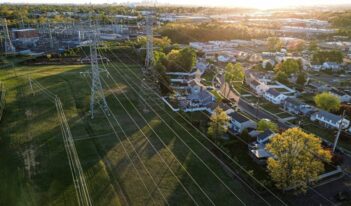
Scholar advocates making disaster assistance more reliable, accessible, and portable.
When Hurricane Harvey struck Texas in 2017, nearly 780,000 Texans had to evacuate their homes due to flooding. Some of these people who depend on governmental benefits were unable to access adequate public assistance after the disaster, according to Andrew Hammond of the University of Florida Levin College of Law.
In a forthcoming article, Hammond argues that even as climate change causes natural disasters to become more frequent and intense, issues within the American welfare state have undermined government’s ability to respond to such events. In response, Hammond recommends regulatory and statutory reform to make benefits more reliable, accessible, and portable during disasters.
For decades, the United States has struggled to provide public assistance after climate disasters in a reliable, timely fashion, argues Hammond. Congress took 91 days to pass an appropriation bill after Hurricane Sandy devastated parts of New York and New Jersey in 2013. It took Congress over a year before it passed a disaster relief bill in 2019 that aided individuals suffering from Hurricane Harvey in Texas, Hurricane Maria in Puerto Rico and wildfires in California.
The United States also fails to make meaningfully accessible the disaster benefits it does approve, claims Hammond. After Hurricane Irma in 2017, a number of Floridians who were waiting outside in line for food assistance at one location collapsed from the heat—so many that police had to close the site.
Furthermore, Hammond argues that, by requiring people to apply for disaster benefits in person, the law discriminates against those who cannot stand in line for eight hours.
And even though the Disaster Supplemental Nutrition Assistance Program (D-SNAP) that provides food assistance to disaster victims is a key part of disaster recovery, American Samoa and Puerto Rico, among other areas, lack access to it entirely.
In addition, governmental benefits, such as Medicaid, typically do not travel with individuals from state to state, maintains Hammond. Following Hurricane Katrina in 2005, the federal government allowed Louisianans to use Special Supplemental Nutrition Program for Women, Infants, and Children vouchers in any state to purchase diapers, baby formula, and food. Hammond explains that this practice was an exception rather than the norm.
For these reasons, the American welfare state is particularly vulnerable to the climate crisis, observes Hammond. He urges policymakers, in preparing to respond to adverse climate-related events, to heed the lessons from the government’s reliance on public benefits during the COVID-19 pandemic.
During the pandemic, Congress was willing to “spend big,” Hammond notes. Congress passed legislation increasing unemployment benefits by hundreds of dollars per week, raising Medicaid reimbursement rates for states, and creating new food assistance programs for students, among other programs.
Although national action during the pandemic overall had a positive impact in terms of assisting with basic household needs, states implemented federal programs unevenly, maintains Hammond. Some states were better at administering federal programs than others, while some did not implement certain programs because they did not want to participate in them.
Texas, for example, cut off Pandemic Unemployment Assistance, giving up $6.5 billion in federal funding. Florida refused to apply for summer funding for food stamps in 2021, delaying $820 million in federal funds for its students.
Hammond says that the federal government can improve its assistance programs to help those affected by natural disasters. He says that the federal government’s response to the pandemic demonstrated that Congress is capable of acting “quickly and comprehensively” to help Americans.
Hammond proposes that lawmakers should legislate now so that additional funding kicks in automatically after climate disasters, instead of being subjected to partisan politics or gridlock. Specifically, he recommends that Congress amend the Food and Nutrition Act to allow states to issue D-SNAP benefits immediately following a disaster, preventing any delays in implementation.
Hammond also says that federal law should make it easier for vulnerable U.S. residents, including children, disabled persons, and non-citizens, to access disaster benefits. Given how much society relies on schools to feed students, Hammond suggests that Congress extend the pandemic electronic benefits transfer program to children living in major disaster areas.
Hammond suggests that Congress could also make it easier for the elderly and disabled to pre-register for assistance, as well as include non-citizens in welfare provisions, so they are not left out as they often were during the pandemic.
Moreover, Hammond proposes that disaster program eligibility should extend across state lines as it did during Hurricane Katrina. Congress would need to amend various statutes, or federal agencies could issue regulations, allowing assistance to follow Americans crossing state lines.
Hammond concedes that Congress may not do enough to meet the challenges of the climate crisis. In the absence of effective federal action, states should develop pre-registration applications for disaster aid and identify ways to move human services personnel from unaffected areas to more impacted areas, he adds.
Nonetheless, the fact that so many states rejected federal funding to help their poorest residents during COVID-19 foreshadows that state assistance during climate disasters may be inequitable as well. Ultimately, Hammond advocates shifting away from state-based aid structures altogether or even implementing a federal cash-based benefit, such as a universal basic income.



